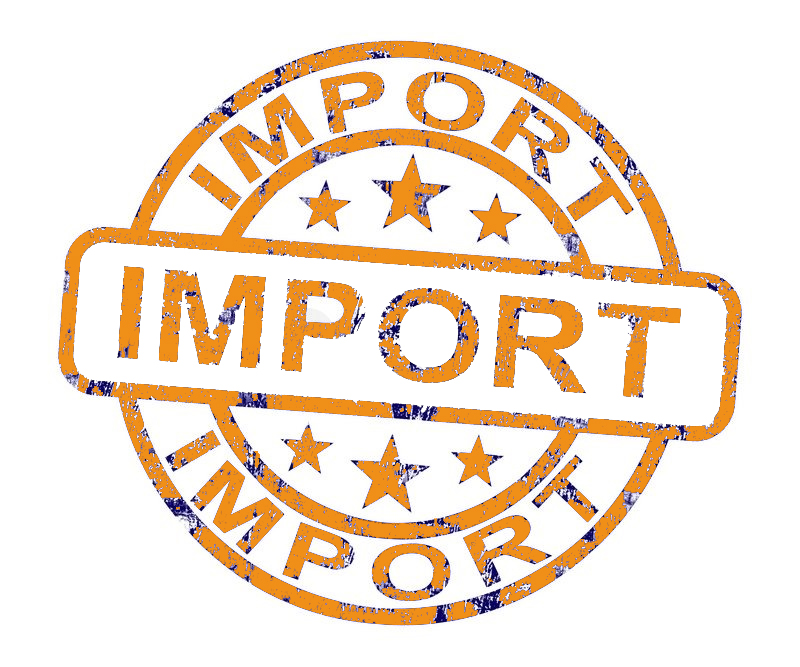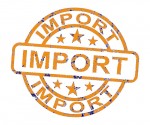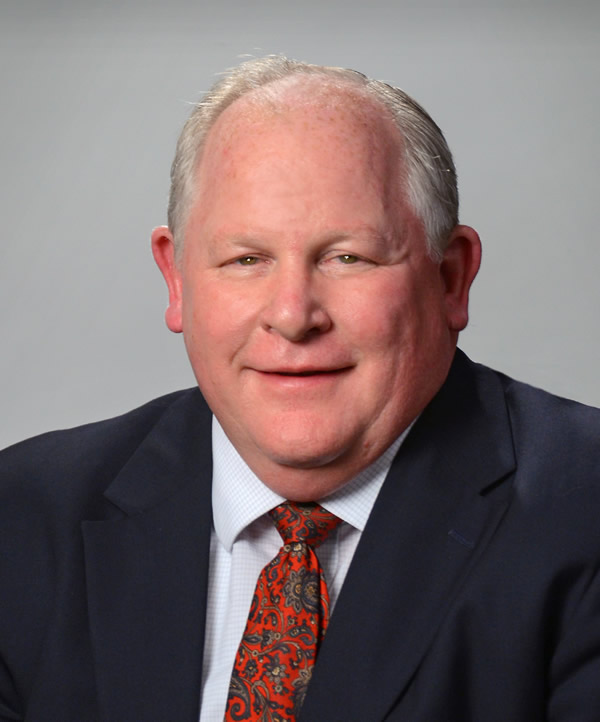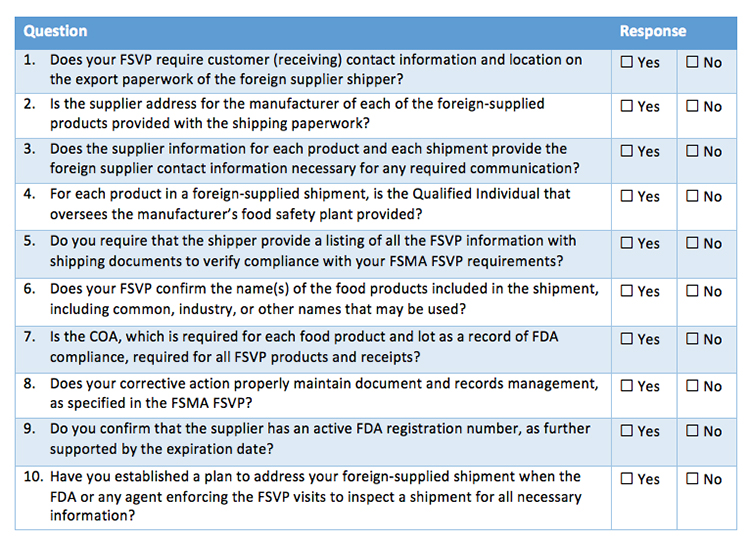In recent years, through regulations created under the Food Safety Modernization Act, the FDA has adopted a preventive approach to food safety, in contrast to the Whack-A-Mole strategy of dealing with foodborne illness that proceeded the FSMA. Thus, an alphabet soup of new processes, such as HACCP and HARPC, have taken center stage. But with so much food being imported from other countries, these regulations could very easily be undermined. Enter the Foreign Supplier Verification Program, or FSVP (found at 21 CFR 1.500 et seq.).
The FSVP’s purpose is to ensure that importers of foods from outside of the United States have adequate assurance that these foods were harvested, grown, manufactured, processed and/or packaged using protections equivalent to those imposed by the FDA on U.S. foods. The regulations define a foreign supplier as the establishment that manufactures, processes or grows the food, or raises the animal, for export to the United States, without further manufacturing or processing by others (besides labeling or other similar de minimis activities). Absent an exemption, importers of foreign foods and the foreign suppliers themselves must comply with the FSVP.
Under the FSVP, importers must conduct a hazard analysis for each type of food they import. They must then approve each foreign supplier they use, taking into consideration the results of that analysis; the identity of the entity that will be minimizing or preventing any hazards; the foreign supplier’s performance; and any other relevant factors. And importers must document this process and their approval of each foreign supplier. This process should take place every three years or whenever circumstances change. And since having an approved foreign supplier has limited effect if importers don’t limit their food imports to those approved suppliers, importers must also have written processes in place to ensure that they import foods only from approved suppliers.
The FSVP is not a one-and-done process. After approving a particular foreign supplier, and before actually importing food for the first time, importers must determine which verification activities they will conduct to provide assurance that any identified hazards have either been significantly minimized or prevented, as well as the frequency of those activities. Depending on the particular food and the type of hazard, the importer must decide whether to conduct onsite audits, sampling and testing of food, a review of the foreign supplier’s relevant food safety records, any other appropriate activity, or a combination of these activities. And if the foreign supplier at any time fails to significantly minimize or prevent any identified hazards, then the importer must have steps in place to take corrective measures.
There are some foods that are exempt from the FSVP’s requirements. The requirements do not apply to juice and fish, food imported for research or personal consumption, alcoholic beverages, foods regulated by the USDA (meat, poultry, egg products), food that is merely shipped through the United States, and food that is manufactured, grown or raised in the United States, exported, and returned. In addition, imported canned foods are exempt, but only if the importer verifies and documents the foreign supplier’s compliance with the requirements of 21 CFR 113. There is also a partial exemption if the imported food will be incorporated into a canned product that complies with part 113. And importers are deemed to be in compliance with the FSVP if they are considered a “receiving facility” under 21 CFR 117 or 507 (hazard planning for human and animal food respectively) and if they either implement preventive controls for the imported food, are not required to do so, or have established and implemented a risk-based supply-chain program.
Last but not least, under 21 CFR 1.512, very small importers and those who import food from certain types of small foreign suppliers are required to adhere to a less burdensome set of regulations. A very small importer is one whose sales of human or animal food, in the previous three years, adjusted for inflation, totaled less than $1 million or $2.5 million per year respectively, when combined with the U.S. market value of any human or animal food imported, manufactured, processed, packed, or held without sale. Foreign suppliers are considered small if they are a qualified facility under parts 117 or 507, are a farm that is not considered to be a covered farm under 21 CFR 112, or if they export shell eggs and have fewer than 3,000 laying hens. Importers must keep records showing that part 1.512 applies.
Very small importers must obtain written assurance from their foreign suppliers before importing any food and every two years thereafter that the supplier is producing the food in compliance with processes and procedures that provide at least the same level of public health protection as U.S. regulations provide. Those importing food from certain small foreign suppliers must obtain written assurances from those suppliers that generally provide assurance that the food is safe.
As always, the devil is in the details. Before importing any food, importers should carefully review the regulations, preferably with legal assistance, to ensure that they do not run afoul of the law and inadvertently undermine the safety measures in place here in the U.S.



















